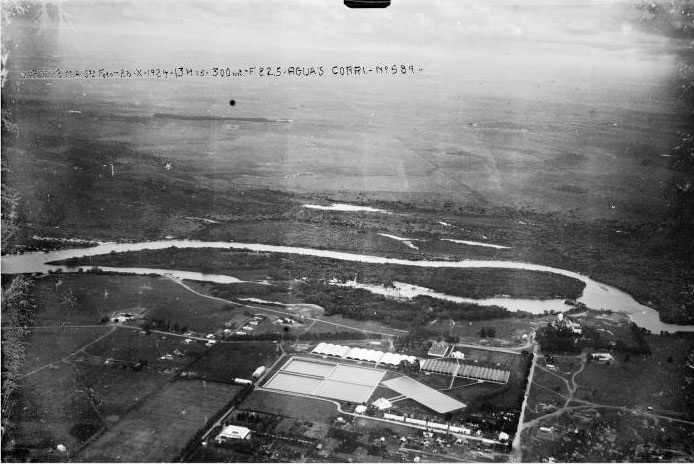Company towns in Uruguay, 1865-1940
Urban, architectural and socio-spatial considerations based on the study of six cases
DOI:
https://doi.org/10.18861/ania.2022.12.2.3309Keywords:
company town, companies, housing, microcosm, community, hierarchyAbstract
This article reviews the history of company towns in Uruguay, one of the most relevant forms of response to the housing problem before the direct intervention of the State. The company town is understood as the urban complex of housing and services created by capitalist companies for the use of their own workers. The cases of the villages of the Liebig Extract of Meat Company, Aguas Corrientes, Conchillas, Peñarol, the refrigerators in Cerro de Montevideo and Salvo and Campomar will be considered. Although there were other cases, these present an adequate diversity for the purposes of this work.
Based on the common characteristics and the differences of these cases, some of which have already been treated by historiography while others have not yet been addressed, the article proposes to reflect on three dimensions of the workers' villages. In the first place, its condition as a "microcosm" is reviewed, that is, as places with relative urban and social autonomy. Second, and directly related to the above, the relevance of the category of "ideal community" for these enterprises is discussed. Finally, the realization and expression of the hierarchies within each of them is analyzed.
Downloads
References
Antola, S., De Betolaza, A., Ponte, C., & Rey, W. (1994, diciembre). Arquitectura y ciudad generada a partir de la industria de capital británico en Uruguay. Arquitectura, 264, 4-29.
Barrios Pintos, A., & Reyes Abadie, W. (1994). Los barrios de Montevideo VI: El cerro, Pueblo Victoria (La Teja) y barrios aledaños. Intendencia Municipal de Montevideo.
Bocchiardo, L. (1963). El Barrio Peñarol. Revista de la Facultad de Arquitectura, 4, 94-102.
Borges, M. J., & Torres, S. B. (2012). Company towns: Concepts, historiography, and approaches. En Company Towns. Labor, Space and Power Relations across Time and Continents (Borges, Marcelo J.; Torres, Susana B., pp. 1-40). Springer.
Camou, M. M. (2003). La empresa Campomar & Soulas: Estrategias de sobrevivencia y crecimiento durante el período de sustitución de importaciones. 1-25. PDF. https://www.audhe.org.uy/Jornadas_Internacionales_Hist_Econ/III_Jornadas/Simposios_III/14/Camou.pdf
Domínguez, J., Silva, J., & Mendoza, P. (1924, septiembre 21). El Pueblo Peñarol (Breve reseña histórica). El Pueblo Peñarol. Su vida y sus progresos, Número único conmemorativo.
El libro del centenario del Uruguay. 1825-1925. (1925). Agencia Publicidad Capurro y Co.
García Esteban, F. (1945). Conchillas, una extraña aventura urbanística. Arquitectura, 215, 32-34.
Garner, J. S. (1992). Introduction. En The Company Town. Architecture and Society in the Early Industrial Age (John S. Garner, pp. 3-14). Oxford University Press.
Juan L. Lacaze. Un pueblo progresista y sin desocupación. (1939, agosto 25). El Día. Número extraordinario de publicidad industrial. Por la Industria Textil y adhesión a la efeméride patria. Campomar y Soulas.
La fábrica jardín. (1939, agosto 25). El Día. Número extraordinario de publicidad industrial. Por la Industria Textil y adhesión a la efeméride patria. Campomar y Soulas.
Lluch, A. (2019). Las empresas frigoríficas en Argentina: Estrategias empresariales y cambios en el sector industrial (1882-1930). América Latina en la Historia Económica, 26(2), e985.
Lupano, M. M. (2009). La gran familia industrial. Espacio urbano, prácticas sociales e ideología (1870-1945). Santiago Arcos.
Negri, A., & Negri, M. (1978). L’archeologia industriale (Vol. 53). D’Anna.
Paterlini de Koch, O. (1992). Company Towns of Chile and Argentina. En The Company Town. Architecture and Society in the Early Industrial Age (John S. Garner, pp. 207-232). Oxford University Press.
Schonenbohm, D. (1994). De «Salvo, Campomar y Compañía» a «Campomar y Soulas S. A»: Elementos para una historia de la empresa. Facultad de Ciencias Sociales, Udelar.
Sierra Álvarez, J. (1990). El obrero soñado: Ensayo sobre el paternalismo industrial: Asturias, 1860-1917. Siglo XXI de España Editores.
Supervielle, P. (2019). Conchillas patrimonio vivo. BMR Productos Culturales.

Downloads
Published
How to Cite
Issue
Section
License
Copyright (c) 2022 Santiago Medero

This work is licensed under a Creative Commons Attribution 4.0 International License.
The journal and its contents are licensed under the Creative Commons - Attribution 4.0 International License (CC BY 4.0). It is possible to copy, communicate and publicly distribute its content as long as the individual authors and the name of this publication are cited, as well as the publishing institution (Universidad ORT Uruguay).

